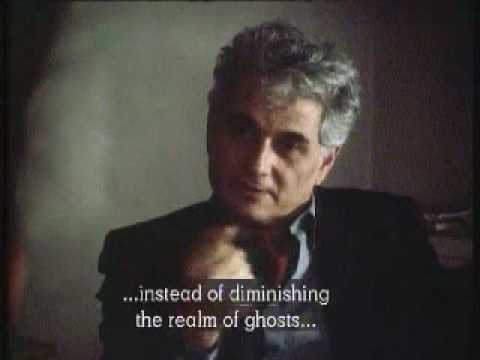Random
Of critical theory
Forty years ago Harold Rosenberg said “art in our time cannot escape having a political content and moral implications. Criticism that is unaware of this is fatally poverty-stricken.” Today you can look for critical theory behind cans of soup at the supermarket. You can find it in your apartment, or in your home. Maybe your pool, if you have a pool. Your cat can teach you critical theory. Your dog is chasing a squirrel. There’s a lesson here somewhere, everywhere. Even at the corner store. Not in the trees. The trees can’t tell you about critical theory, but the wind can. You don’t need a sense of humor to know it’s raining a lot. Look around. Better yet, look at yourself. Harder. Look harder and deeper at yourself. And see that you are just an it. Critical theory is the space between things. There are books entirely on this lack of space. More books all the time more books on theory. Eat. But you don’t need to read the books. You just need to pay attention to them. Let them envelop the you that you thought you were in rust. Give yourself to them, and you will find that you weren’t really. But they are and they aren’t. And it’s never enough to think that you know, because you don’t. All there is is an idea of something between the things, spreading them out, making them whole. A ghost. Find it in the penny fountain at the mall below the sun light crashing gently thru the atrium, so high above. It’s in the dust on the plants next to the food court, where the last sandwich artist makes too-hot coffee for the grandmas and the grandpas, stretching out their limbs like wet shirts hung over a dry line strung between two buildings within several larger buildings, waiting to learn what it’s like to be an idea in the mind of someone living without knowing they’re going to die.
Tags: maybe you know what i mean


Critical Theory: An Introduction
so much depends
upon
some plastic
greenery
glazed with mall
dust
beside the white
people
great post, rey-rey
I don’t think I “know” that I’m going to die. I haven’t read any critical theory that gave me this ‘knowledge’, though I’m guessing some theorists have tried.
if you consider seneca a critical theorist in the sense that the frankfurt school sought to ‘liberate human beings from the circumstances that enslave them’ [stanford encyclopedia of philosophy], i would say one of the best ways i’ve read it said was by seneca, in his letter to lucilius we now call ‘asthma’ or ‘on asthma and death’
when seneca says ‘I know’ he uses the latin scio as opposed to novi (which would imply something learned) so i think he really means it with even more certainty than our know now implies, as scio is of course a conjugation of scientia from which we get our ‘science’ & while i’m no latin scholar, i feel our conception of knowledge is not as nuanced as it was for the romans, who distinguished these words from the greek gnosis & seneca could just as easily have used that word if he meant to imply something mystical. he knew he was going to die because he knew he had already been dead. some people, i feel, don’t know they ever were
Possibly every piece of writing is a montaigne of ‘trials’. and reading, a heap of breaking verdicts.
Among reflex, sensation, perception, apprehension, comprehension, understanding, and knowledge–add ingredients to taste as needed–, I think our (English) cognitive vocabulary at least matches the Latin speakers’ for nuance. Few of us will match Cicero or Horace in dictive subtlety… well, hell.
I like the frankfurters’ emancipatory discourses–fruitful Kantian enlightenment! It’s a conundrum, where the rubber meets the road: what “circumstances”? within? without? What does it mean to be–what is the effect of being–conscious of self-limitation?
“Not-being”, I get, in the sense of ‘that particular compound substance, now thrown into a volcano, no longer existing’. It is to be subjectively conscious of time. I don’t know what I was like “before me”, and I don’t see the evidence that Seneca knew what Seneca was like before him.
By the way, I don’t think your “stanford encyclopedia of philosophy” linkage (?) is active. I see the purple letters, but the pointer on my screen turns to colliding parentheses over them (as over the black letters), rather than enabling a click-on.